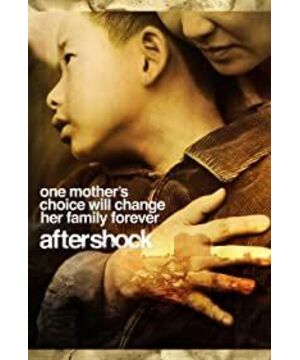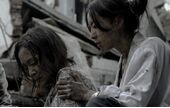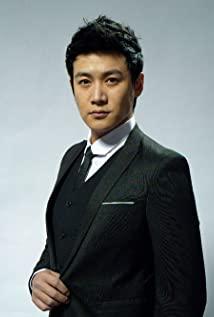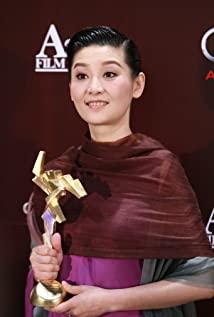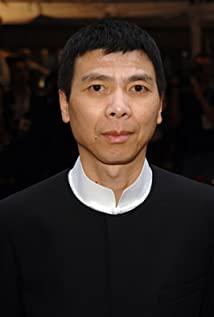All spoilers.
I think everyone knows that this is not a disaster movie. Even if it has something to do with Tangshan, it looks like a commercial promoting New Tangshan, because such a family ethics drama can be placed in any disaster or non-disaster scene. The Tangshan earthquake had nothing to do with the tragedy, so Director Feng did an unkind thing to tamper with the original title of the novel - "Aftershock", only the English name is more honest, called "After Shock".
But this is still a good film among domestic films. The plot is very catchy and the mood is very ups and downs. Xu Fan and Uncle Daoming's acting skills are also very good. Zhang Jingchu and Lu Yi are still like idols. However, compared with the novel, I think the filming is a bit rushed, many plots are not fully developed, and the transition of time and place is relatively blunt, which looks more like the outline of a thirty or forty episode family ethics drama.
Of course, the original novel is written a bit like a novel outline, with many words and plots like compressed cookies. The author is said to be from Wenzhou, the United States, but she is considered a genius to have such a story idea. It would be better if she could revise a TV drama script.
Let me tell you what I think about this movie. There is a twin vine-type knot between the mother and daughter, that is, it is false to torture each other. This emotion has lasted for thirty-two years, even if it is a big one in the end. Reunion, for such a long time, is still a tragedy, far more tragic than a major earthquake.
The choice of a mother to protect her child and abandon her daughter is not wrong in my opinion. Because it is either one or the other, one must always be
given up , it is wrong to give up anyone, so it is right to keep anyone.
The little girl is very smart, and she is more powerful, you can see from how neatly she helped her brother get the popsicle back. So according to how smart she is, she should be able to understand her mother's painstaking efforts, and even if she couldn't understand it at the time, she could always figure it out when she grew up: in that situation, wouldn't it be a mistake to save her but not her brother? I am afraid that the little girl started self-suggestion when her mother gave the tomatoes to her younger brother: she began to think that her mother greatly favored her younger brother, and
for the next thirty-two years, she continued to irrigate this self-suggestion by deliberately avoiding and deepening disgust. The seedlings of emotions have grown into a towering tree with bad hints such as "abandonment", "betrayal" and "indifference".
The mother has never abandoned the little girl. In the next 32 years, she placed the photo of the little girl and her deceased husband side by side, not remarrying, not moving, and "not allowing herself to live a good life" like an ascetic practice. Missing and guilt for the little girl was a pear flower needle pierced into her back, and the pain was unbearable. But the little girl always felt that she was abandoned by her mother, so she pretended to lose her memory at a young age and spent ten years with her well-off adoptive parents. Ten years later, traveling abroad to study, in my opinion, is a deliberate avoidance. She wants to completely forget about Tangshan and stay away from Tangshan. Little girl, she didn't know, in fact she was the one who really abandoned and betrayed her family, so the mother sighed when she heard that the little girl was married to Canada, "So she hides so far from me."
It's not that the little girl is not in pain. Her pain is equal to her mother's. She tortured her mother with her own death, and her mother tortured her with her self-imposed betrayal. Finally, when the reunion came, each other discovered the bridge of each other's torture. , turned out to be all illusory - she never died, and her mother never abandoned her. The comedy at this time is actually more tragic than the tragedy. After all, after thirty-two years, how much time is left in life?
The pain of the little girl and the pain of the mother have a mixed effect. Both are real pains, but in different ways of redemption: the little girl is eager to grab a stranger in this world, outside of her blood relatives, and try to have all kinds of relationships with him in order to build a new kind of family. Relationships, such as her having sex with her boyfriend early (the foundation of the couple's relationship), and stubbornly refusing to have an abortion after she became pregnant (the foundation of the mother-daughter relationship), I believe she said "Do you know what sacrifice is? "The subtext is actually "I was abandoned, so I can never abandon my child again". I once read an article in psychology that said that girls whose families are broken or abandoned are very likely to be single mothers or lose their lives to men at an early age, because they are weak and helpless, and they are eager to reconnect with the world, Although most of their flowers are silly and naive, they end up letting their children repeat their tragic mistakes. The little girl's life is not bad, although she was abandoned by the child's father, but after all, she has a handsome and eloquent adoptive father who has two bars and four stars (at the teacher level, probably a high school or something), and later married an old man. A handsome foreign lawyer with a garden house. The little girl has been through too much trouble, but in my opinion it's a bit tricky. She can return to her adoptive father's wings to avoid the wind and rain when she takes the child. Her ups and downs seem to me to be exhausting, and her heart is always incapable. An Sheng's power is the power that has never been released after the earthquake. Only when it is consumed can she be at peace.
The mother's painful redemption is pure tragedy. Her mother-in-law persuaded her to remarry, but she was unwilling; Master Niu was a sincere and good person. In the novel, it is written that before the earthquake, his mother was a jealous flower on this street. Although Xu Fan is old and young, he did perform the indomitable tone of a young woman in a small town. Just as the little brother told his sister, the mother's heart has long since collapsed, and she has collapsed into a powder. In the thirty-two years of hard work and hardship to the grandson, although the mother did not have the struggle and struggle like the little girl, she was very stable, but this This kind of stability is even more tragic, because when she was still a young woman like a flower, this kind of stable widowhood came and never dissipated, just like the twilight before dark lasted for thirty-two years.
Because of the beginning of the Tangshan earthquake, the Wenchuan earthquake became an inevitable part of the turning point. This is not the occasion. This is probably a "re-enactment" given by God, giving the little girl (already a mature woman) a chance for psychotherapy. Only on the scene of the reenactment of the tragedy can the little girl be able to witness a mother's difficult choice, and she can partially forgive her mother - as I said at the beginning, the mother's choice during the earthquake is only a catalyst for the little girl's self-psychological suggestion one. But with the opportunity of forgiveness, there is a possibility of further forgiveness - so the mother and daughter met, Zhang Jingchu's face was still light, until she saw the book prepared by her mother in her tombstone, she realized that her mother never Betrayed her, but she gave her mother such a huge spiritual shackle by hiding the news of her survival for 32 years.
Then, from Zhang Jingchu's sobbing expression, it could be seen that the little girl experienced another major earthquake in her heart. Before, she lived in the hatred of being abandoned. Although it was painful, it was no more painful than the guilt after knowing the truth. Hating someone is a knife in the heart, and the person who is hurt can always raise their head and say "I hate you"; but guilt for someone is a needle hidden in the thread, and you must bow your head and say, "I'm sorry for you. ".
I think the mother's ending is a comedy, but the little girl has a bad life. Because she is too entangled and stubborn. Maybe Director Feng arranged a dark line: the little girl has a daughter who studies psychology and has bright eyes and no trauma. Maybe she can use her knowledge to heal her mother. This will be another wonderful story of mother-daughter knot.
In addition, the last scene: the earthquake monument in Tangshan and the "Prajna Paramita Heart Sutra" of His Royal Highness Faye Wong sounded, I shed my first tear. This scene is so beautiful. Under the blue sky and white clouds, and beside the square monument of clear water, a person who once killed his family looked at the name on the square monument calmly, said that he would come to see you in a few days, and then rode away. All the tragic and heart-rending tragedies finally had to be commemorated in such a quiet and gentle way-he could finally live in normal emotions, live in peace, and the scars were comforted. This is the attribution of normal humanity.
After all, even if someone who has been hurt can't come out, but always lives in the hurt they imagined, it actually means "self-inflicted sin". Forgiveness and reconciliation are the right way in the world.
View more about Aftershock reviews


